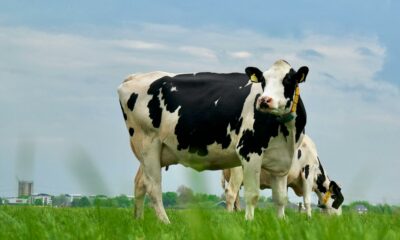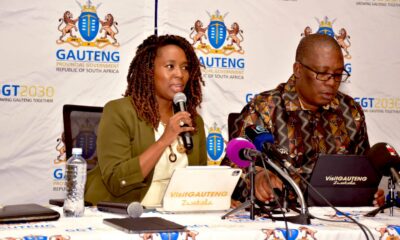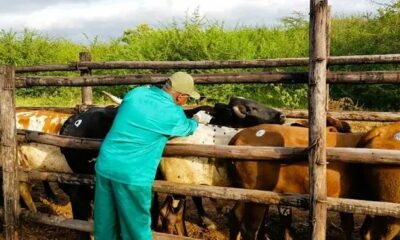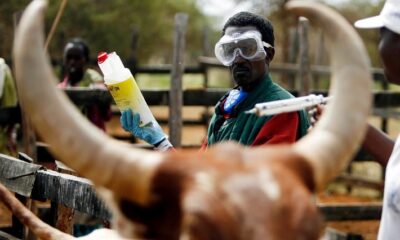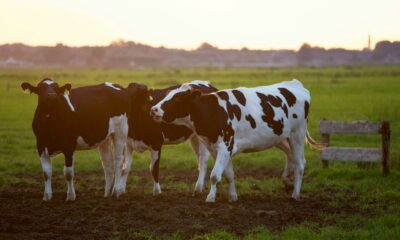News
South Africa Races to Contain Poultry and Livestock Outbreaks with Mass Vaccinations
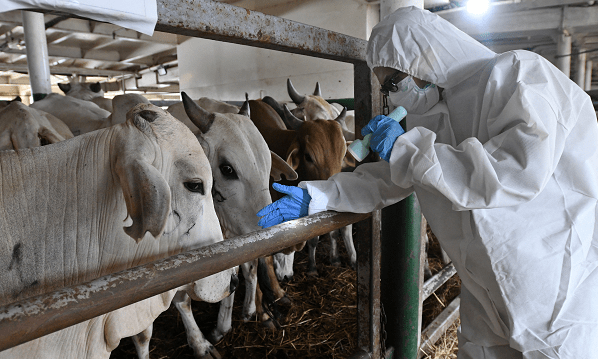
A nationwide poultry vaccination drive and new Biosecurity Council aim to contain dual outbreaks threatening food security
South Africa’s agriculture sector is facing a full-blown biosecurity crisis, and the government is moving fast to avoid a disaster. With both avian flu and foot-and-mouth disease breaking out across the country, the Department of Agriculture has launched South Africa’s first-ever mass poultry vaccination campaign while also rolling out a plan to trace livestock from farm to fork.
Agriculture Minister John Steenhuisen confirmed this week that his department has secured vaccine supplies and is mobilising 50 animal health technicians to hit high-risk farms first. The goal: stop the bird flu in its tracks before more chickens are culled, and restore some sense of stability in a food system that’s increasingly under pressure.
But the timing couldn’t be worse.
Avian Flu Hits as Brazil Ban Bites
The most immediate threat comes from the poultry sector. An avian flu outbreak in Brazil — the single largest exporter of poultry to South Africa — prompted a ban on imports just three weeks ago. While local demand is low due to the winter season, the pressure is mounting on domestic producers to keep the virus contained and keep the shelves stocked.
The South African Poultry Association (Sapa) has tried to allay public concern, stating that local producers can scale up to meet any shortfalls. But behind the scenes, there’s a scramble underway to prevent further spread and avoid mass culling.
Minister Steenhuisen says vaccination teams have already received lists of farms to prioritise, with commercial operations and high-density zones at the top of the list. It’s a race against time and virus mutation.
Foot-and-Mouth Reaches the Highveld
Adding to the chaos is a widening foot-and-mouth disease (FMD) outbreak that’s moved from KwaZulu-Natal into the Highveld. This week, Karan Beef, which operates the largest feedlot in the world in Heidelberg, confirmed that 2% of its herd had been infected. That’s roughly 2,400 animals out of a staggering 120,000.
While Karan Beef has quarantined the facility and is waiting on state vaccines to begin treatment, the economic fallout is already unfolding. China immediately banned imports of South African beef products, cutting off a vital export stream.
There’s also concern over how this will disrupt domestic supply chains. The outbreak comes during peak weaning season, and Karan Beef has warned that limited feedlot capacity may force farmers to hold on to calves longer than usual. That creates a backlog — and added financial strain for rural producers.
Government Responds: Vaccines, Traceability and Biosecurity Council
In response to the twin crises, the Department of Agriculture is pushing forward with a multi-pronged strategy. This includes the:
-
Mass poultry vaccination programme, now underway
-
Procurement of over 900,000 doses of FMD vaccine for KwaZulu-Natal
-
Launch of a national livestock traceability system, from “farm to fork”
-
Formation of a Biosecurity Council, which will include the SAPS, veterinarians, border authorities, and scientists
A big part of the long-term fix lies in reviving Onderstepoort Biological Products — the state-owned vaccine producer that’s been hamstrung by capacity issues for years. The facility is now getting an upgrade to improve vaccine production and restore self-sufficiency.
This marks a critical shift in strategy. South Africa has long struggled with reactive responses to animal disease outbreaks. The establishment of a formal council and a national traceability system could be a game-changer — if implemented correctly.
Public Reaction and What’s at Stake
On social media, reactions have ranged from concern to cautious optimism. Farmers have expressed frustration over years of poor biosecurity infrastructure, but many are welcoming the government’s renewed urgency.
“About time,” wrote one poultry producer on X (formerly Twitter). “We’ve been screaming about vaccine supply for years.”
Others are more wary, pointing to previous failures to follow through on big promises. Still, few would dispute that the stakes are high. Agriculture remains a critical employer and contributor to South Africa’s economy — and food inflation is already placing pressure on households.
The outbreaks are also a reminder that South Africa’s food systems are highly interconnected and vulnerable. From biosecurity at the farm level to geopolitical dynamics like trade bans and vaccine imports, it’s a complex chain that requires serious investment and coordination.
A Moment to Rethink Biosecurity
There’s no sugar-coating the situation. South Africa is in the middle of a dual disease crisis that could damage its agricultural economy and put food security at risk. But it may also be a chance to reset.
With vaccines on the ground, new traceability tools on the table, and cross-sector collaboration under the new Biosecurity Council, the country is making its move. Whether it’s fast and strong enough remains to be seen.
But at least now, the fight has started.
{Source: Daily Maverick}
Follow Joburg ETC on Facebook, Twitter , TikTok and Instagram
For more News in Johannesburg, visit joburgetc.com



